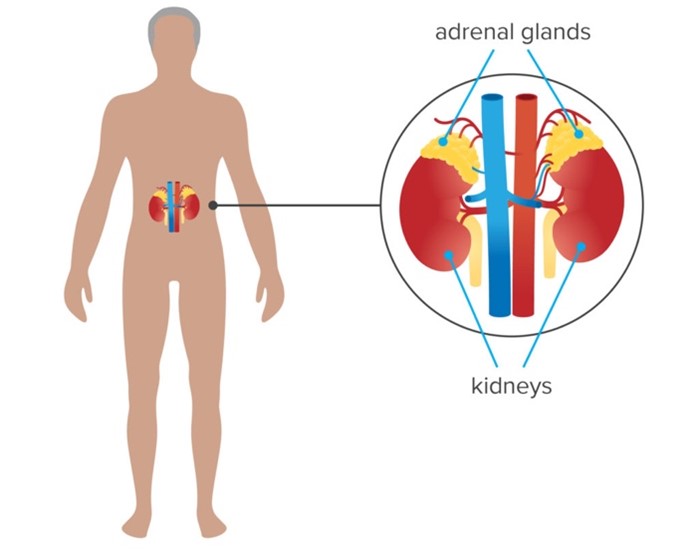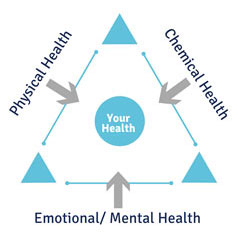Adrenal fatigue syndrome is considered to be a 21st century syndrome whereby there is subclinical suffering to the adrenal glands but not yet clinically diagnosed as adrenal insufficiency which leads to Addison’s disease and Cushing’s disease. It is equally important to address adrenal fatigue because it is not necessary to wait until crisis point to intervene.
The adrenal glands are two triangle shaped glands about the size of walnuts and are located on top of the kidneys. They are part of the endocrine system and react to stressors by secreting stress hormones adrenaline and cortisol. It isn’t possible to be in a state of stress without activating the adrenals.

A scientist named Hans Selye, also known as the father of stress research, developed a model of 3 stages of stress.
- Alarm Stage: The body reacts as it should by recognising the danger/stressor and reacting by triggering the fight or flight response (sympathetic nervous system). Hormonal responses occur and the adrenals release adrenaline and cortisol.
- Resistance Stage: The body begins to restore the balance via homeostasis and the parasympathetic nervous system is activated for recovery, repair and renewal. However, when the body is continually experiencing the stressor, the body adapts by a continued effort in resistance and remains in a state of arousal. In other words, when there isn’t enough time for recovery, your body wears out and you move into the final stage.
- Exhaustion Stage: The body has been in stress for a while and the energy supply drains. In this stage, stress levels go up and stay up, leading to adrenal fatigue.
Common Symptoms of Adrenal Fatigue
- Fatigue and tiredness that is not relieved by sleep
- Irritability
- Lethargy
- Mood changes such as mild depression or decreased enjoyment in life
- Increased recovery time required after illness or trauma
- Muscle weakness
- Salt and sugar cravings
- Increased thirst
- Decreased sex drive
What Causes Adrenal Fatigue?
Stress! There are 3 primary causes of stress: physical, chemical and emotional stress. They can happen to anyone on a daily basis.
What Can We Do to Support Adrenal Fatigue?
Reduce our physical, chemical and emotional stress loading.
Physical: In reality, many people in today’s society are consumed by technology as it continues to grow and creep into many aspects of our lives. However, we can make simple changes to the way we use technology to reduce our physical loading. For example, by having good ergonomics when using a phone or computer. When we are bent over, we confuse our brain into thinking it is in a state of fight or flight. Also, when lifting it is important to use correct form and have a straight back to place less stress onto the wrong muscle groups. Lastly, as you may have guessed, it is important to undertake regular exercise to keep our body’s moving as motion is lotion.
Chemical: We can reduce chemical stress by reducing our consumption of food preservatives, herbicides and pesticides. Instead, replace them with whole foods, organic produce and a good quality probiotic.
Emotional: There are many types of emotional stress, ranging from being unhappy at a job, relationship or school to having Post Traumatic Stress Disorder (PTSD). Speaking to a loved and trusted one or seeking professional advice from a counsellor or psychologoist may help reduce emotional stress. In addition, practicing daily mindfulness, breathwork and meditation can bring us to a state of calmness and peace whilst reducing emotional stress.
If you believe you may be suffering from adrenal fatigue, book in to see chiropractor Dr Cindy Lam to discuss how chiropractic care can help on 6299 2660.

